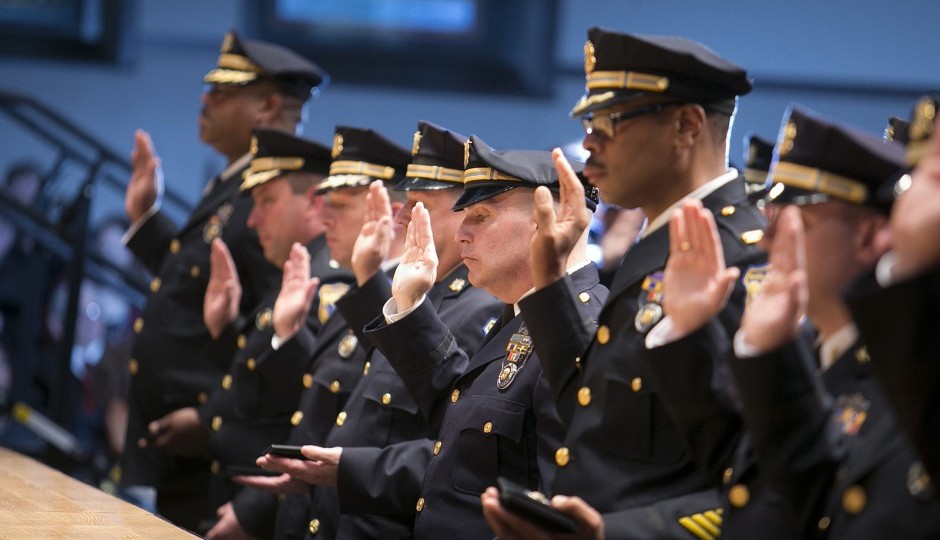Bill Makes It Illegal to ID Officers Who Shoot Civilians
A Pennsylvania House committee gave an overwhelming thumbs-up to a bill Tuesday that would make it illegal for public officials to release the names of cops who shoot civilians until an “official investigation” is completed.
The panel passed the legislation unanimously.
Republican State. Rep. Martina White, a freshman lawmaker from Philadelphia, introduced the bill.
“As we’ve seen throughout the country, police shootings involving police officers have become so politically charged that the officers’ lives and their families can be endangered even if the use of force was justified,” said White after the bill passed. “We need to balance transparency with some basic protections for our law enforcement officers.”
White received key support from the Fraternal Order of Police in a special election in March. The union donated $5,000 to White in February and backed her over Democratic candidate Sarah Del Ricci.
White introduced the bill shortly after Philadelphia Police Commissioner Charles Ramsey announced that the police department would begin releasing the names of cops who shoot civilians. That policy was recommended by the U.S. Department of Justice as well as activists calling for more police accountability. The FOP strongly opposes it.
After an investigation is completed, police officers would be named if they were criminally charged. (Obviously. That’s a matter of public record.) Under White’s bill, police officers who are not charged could be named by public officials after an investigation only if doing so would not “create a risk of harm to the person or property” of the officer or their family.
The ACLU said the bill is a blow to government transparency.
“We give our police officers a great deal of power, including the use of physical force, up to and including deadly force,” said Reggie Shuford, executive director of the ACLU of Pennsylvania. “It is crucial that transparency is coupled with that power. This bill diminishes transparency. The implication here is that police officers who use force have something to hide.”



